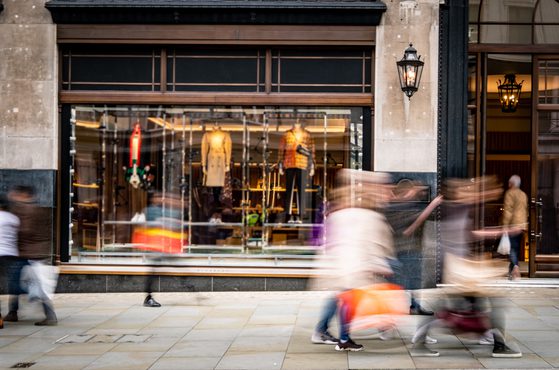English Devolution & Community Empowerment Bill — what it means for retail leases

We explore what the English Devolution and Community Empowerment Bill means in practice and how its reforms may affect both retail tenants and landlords.
Read more
We make the difference. Talk to us: 0333 004 4488 | hello@brabners.com
AuthorsHelena Davies
5 min read

Dr Amna Khan at The Trafford Centre
Recently, we had the privilege and pleasure of meeting with consumer behaviour expert Dr Amna Khan at The Trafford Centre to learn more about the key trends shaping the retail sector and driving consumer preferences.
The insights we gained around sustainability, in-store experiences and the cost-of-living crisis will help retailers to cater to the modern consumer.
Watch our video below or read on to find out more.

A whole generation of consumers have now experienced crisis after crisis. From Brexit to the pandemic and now the cost-of-living crisis, disposable income has been squeezed like never before.
This has led to the rising popularity of own brand, discounted and pre-loved products, as well as an increased focus on sustainability and reducing waste.
Today’s consumer is cautious and considered. Yet, post-pandemic, we have seen customers flock back into stores for that sense of community and experience that just isn’t the same when shopping online.
Omnichannel retailing is enabling brands to bring online features into their offline spaces. Technology is helping to provide a seamless experience for customers. From River Island’s smart fitting rooms to Zara’s scan-and-go capabilities, brands are getting better at delivering what consumers want — more convenience coupled with the tangible, sensory experience that can only be delivered in-store.
In recent years, some speculators have wondered whether the high street would be killed off by digital retail. Yet now, the experiences that retailers can offer in-store — coupled with the high cost and carbon impact of reverse logistics from the vast number of online sale returns — has made ‘bricks and mortar’ stores critical assets to the success of the modern retailer.
Even brands like Gymshark — which has traditionally been online-only — are now electing to develop physical stores because they understand that this is where strong relationships are built. Gymshark is using its store presence to hold a range of events that bring customers together and further develop the emotional connection they have with the brand.
In this way, brands are able to create real communities of customers that love their products.

Consumers are also growing increasingly responsible. They’re interested in retailers’ values and purpose, but they don’t just want retailers to talk about ‘CSR’ and ‘ESG’ — they want to see this in action.
Setting up charitable foundations, focusing on sustainability and adding value to local communities are all things that consumers want to see from their favourite brands — and this includes challenging the traditional ‘fast fashion’ consumption model.
In the social media age, consumers are constantly reinventing themselves and technological retail models like those of HURR and Hirestreet are championing the rental model as a more sustainable and cost-effective way to achieve new looks without filling up the wardrobe.
Accelerated by the cost-of-living crisis, pre-loved products are also growing in popularity — particularly among Gen Z and Gen Alpha consumers — with the likes of Zara and PrettyLittleThing leading the charge.

Today, authenticity is king — and the use of relevant influencers that connect with your customers is critical to success. Building a relationship with an influencer on popularity alone is simply not enough to generate sustained interest in your brand — your customers want to see influencers they can relate to.
And while the popularity of influencers is continuing to generate real interest in brands, there’s a trade-off for retailers with the potential for reputational risks.
Many retailers may not have the legal protection they need to provide that added layer of control over what influencers and content creators can do while wearing or promoting their brand. Any negative associations can stick in consumers’ minds, so it’s important to take the right steps to minimise the risks.

Technology is enabling retailers to offer something fundamentally different to customers. This extends to the in-store experience, where tech is transforming convenience and customer service. Data is facilitating personalisation and tailored experiences like never before.
The emergence of AI will continue to differentiate the offerings of individual retailers, helping brands to stand out among competitors. Temu is among the first to use gamification in its app, through which users can play games and even redeem gifts for sharing deals with friends.
It will be interesting to see how augmented and virtual reality continue to be implemented by retailers through virtual try-ons both in-store and online.
With so many retailers embracing change, it’s vital to have a true legal partner on-side — a partner that understands the complex retail landscape and can help to achieve your commercial goals.
We provide the full range of legal services for the retail sector.

We explore what the English Devolution and Community Empowerment Bill means in practice and how its reforms may affect both retail tenants and landlords.
Read more

We break down the case of AB v Grafters Group Ltd and explore some key lessons for employers.
Read more

At the Future of Retail: Risk & Resilience Conference 2025, leading voices explored the challenges and opportunities shaping the sector.
Read more